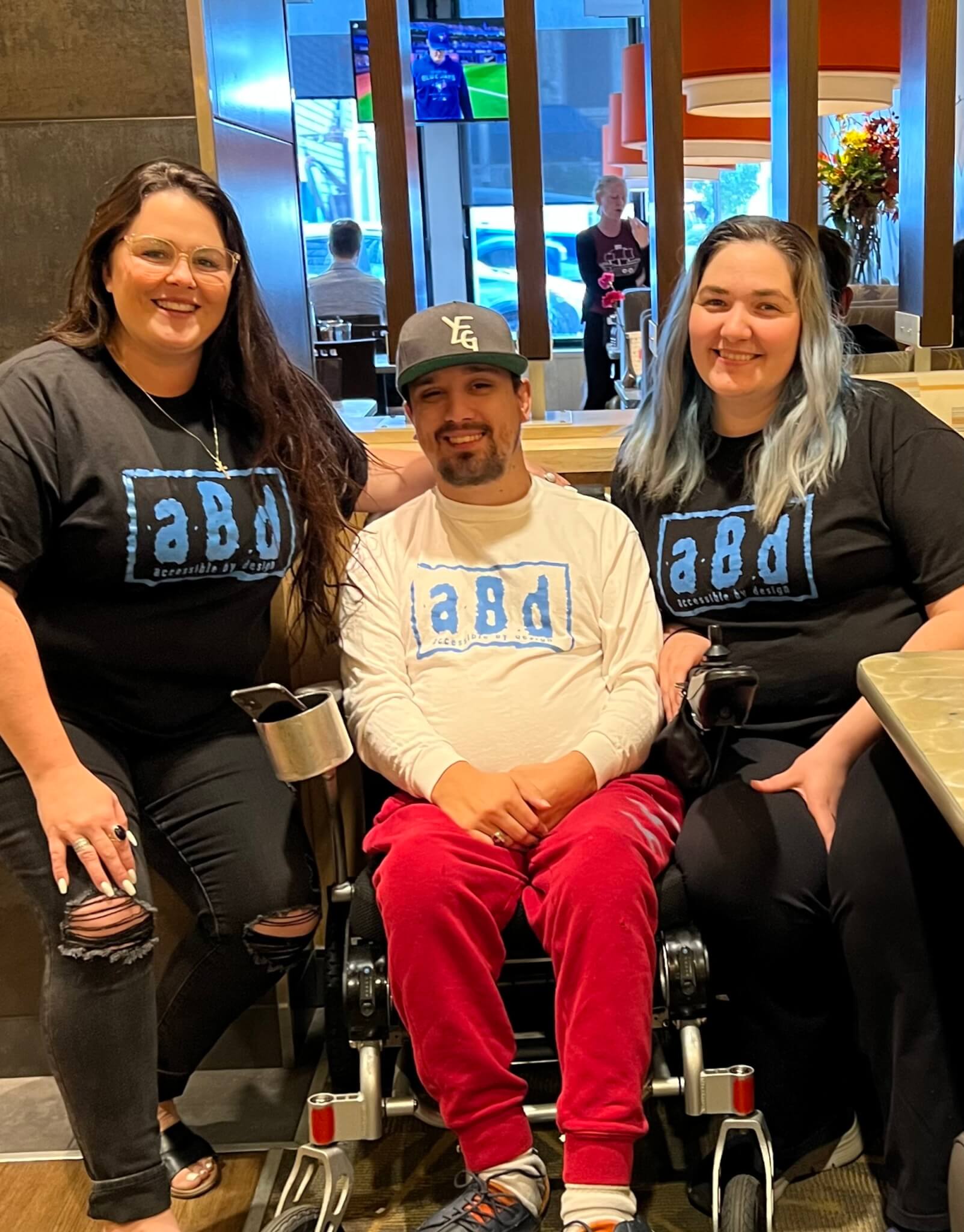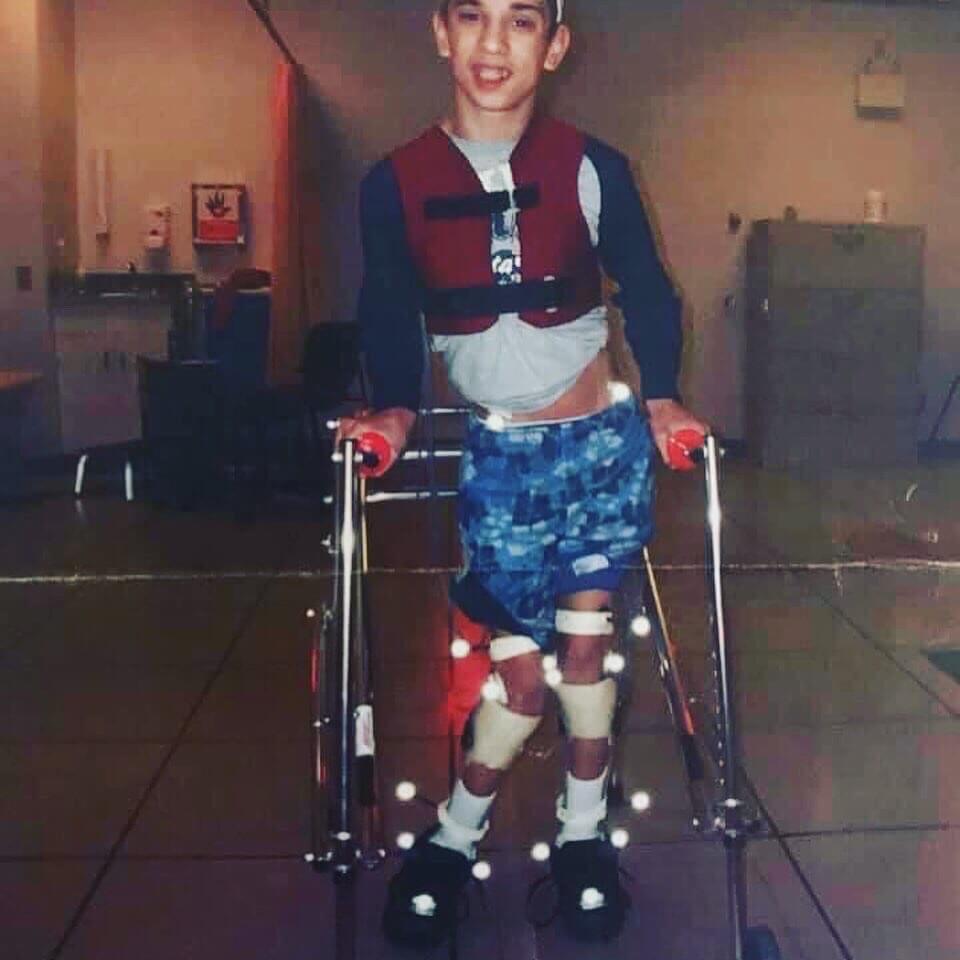Accessibility too often an after-thought for businesses and design, says Edmonton's Brad Bartko
Cities, architects and designers, and business owners must do a better job eliminating barriers for persons with disabilities, says a disability advocate.
While accessibility standards should be top of mind for business owners, unfortunately they are not, said Brad Bartko.
"I'm tired of being seen as a cost to people. I can't be bought. It's time to start thinking about the human side of accessibility and inclusion," he said.
Born with Cerebral Palsy, the Edmontonian has been in a wheelchair his whole life and has many firsthand experiences with inaccessible spaces in cities across Canada.
When he was 18 years old and in need of a washroom at an Edmonton bar, Barko was escorted to a broom closet labelled as an "accessible washroom." When he questioned the accessibility of the space, the owner said, "It's not my problem. We don't get many of you people in our establishment."
From that moment on, Bartko said he knew he needed to use his voice to change how people think about accessibility.
That's why he and his wife founded a company called DisABILITY - Accessible By Design. They help establishments such as restaurants and bars become more accessible and inclusive.
Education key to change
Bartko believes that education and awareness are the keys to making the world more accessible for everyone. With that in mind, he recently completed PowerED™ by Athabasca University's Rick Hansen Foundation Accessibility Certification™ (RHFAC) Training program.
"Getting educated is going to open your mindset to a new demographic. It's going to shift your thinking from being about me, to we," he said in a recent interview just before International Day for Persons with Disabilities, Dec. 3.
"We are all going to become disabled in some way, shape, or form, so we need to make changes and remove the barriers that prevent us to live our lives to our full potential."
We are all going to become disabled in some way, shape, or form, so we need to make changes and remove the barriers that prevent us to live our lives to our full potential.
Brad Bartko

Enforcing accessibility standards
Bartko said his mission is to get people to think proactively about accessibility instead of reactively.
"If you think about the future and design our world with the future in mind, the world is going to be a better place," he said.
"This not only helps people with disabilities, but also seniors, parents with strollers … it helps everyone."
Related: Brad Bartko talks accessibility and Risk Hansen Foundation Accessibility Certification™ Training on Real Talk with Ryan Jespersen
Eye-opening training
Designed to help building owners and tenants measure the accessibility of their spaces, the RHFAC Training program promotes the adoption of universal design principles to increase access for by all people regardless of their age, size, ability or disability.
Bartko called the program "eye-opening" and said he felt it would be beneficial for anyone, but especially accessibility advocates and municipal leaders. Other professions could benefit, including architects, general contractors, engineers, urban planners, design-builders, or anyone interested in accessibility in the built environment.
"This course did a deep-dive into universal design. I knew of it, but I really didn't know the depth of it," he said.
After taking the training, Bartko feels that universal design shouldn't be a recommendation but a requirement in building codes and policy.
If you think about the future and design our world with the future in mind, the world is going to be a better place.
Brad Bartko

Being a change-maker
In addition to his work with restaurants and bars, Bartko works with municipalities to share different perspectives for building public spaces right the first time. He recently became the first disability consultant to advise on a major construction project in Spruce Grove, Alta.
This work not only helps ensure spaces are created with consideration to universal design principles and inclusive language, it also ensures that all visitors to a space feel wanted, included, and accepted.
"When you look at the word disability and you take out the 'dis,' you get 'ability.' It's important for the world to see your capabilities-we can all change the world," he said.
Learn more about making spaces around you more accessible by visiting the PowerED™ website.